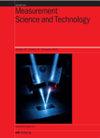Role of extrinsic factors on magnetoelastic resonance biosensors sensitivity
IF 3.4
3区 工程技术
Q1 ENGINEERING, MULTIDISCIPLINARY
引用次数: 0
Abstract
Magnetoelastic resonance devices are attractive for application as biosensors in health-related areas as they allow contactless detection of pathogenic agents with high sensitivity. After functionalization, they offer valuable diagnostic options that promote efficient capture of mass on the sensor surface through biological interactions. Magnetoelastic sensors are also sensitive to external factors such as temperature, magnetic fields, and variations in mass that can arise from processes unrelated to biological interactions, including corrosion and salt crystallization. This article evaluates extrinsic factors that affect the response of magnetoelastic resonance sensors for diagnostic applications. In particular, the influence of heat treatments, operation temperature, applied DC magnetic field bias, and corrosive environment were studied. The control of all these factors is crucial for the design, fabrication, and functionalization of magnetoelastic resonance biosensors and for the development of measuring instrumentation and effective measurement protocols. This work established maximum operating temperature and bias field variations to keep the sensor sensitivity. Heat treatment of the sensors before and after coating improved the signal-to-noise ratio and corrosion resistance. Further improvement in corrosion resistance was provided by cathodic protection, which has been proven beneficial for applications of magnetoelastic resonance sensors in aqueous fluids.外在因素对磁弹性共振生物传感器灵敏度的影响
磁弹性共振装置可实现高灵敏度的非接触式病原体检测,因此作为生物传感器应用于健康相关领域非常有吸引力。经过功能化处理后,它们可提供有价值的诊断选择,通过生物相互作用促进传感器表面对质量的有效捕捉。磁弹性传感器对外部因素也很敏感,如温度、磁场以及与生物相互作用无关的过程(包括腐蚀和盐结晶)可能引起的质量变化。本文评估了影响诊断应用磁弹性共振传感器响应的外在因素。特别是研究了热处理、工作温度、应用直流磁场偏置和腐蚀环境的影响。所有这些因素的控制对于磁弹性共振生物传感器的设计、制造和功能化以及测量仪器和有效测量协议的开发至关重要。这项研究确定了最大工作温度和偏置场变化,以保持传感器的灵敏度。涂层前后对传感器进行的热处理提高了信噪比和耐腐蚀性。阴极保护进一步提高了耐腐蚀性,这已被证明有利于磁弹性共振传感器在水性流体中的应用。
本文章由计算机程序翻译,如有差异,请以英文原文为准。
求助全文
约1分钟内获得全文
求助全文
来源期刊

Measurement Science and Technology
工程技术-工程:综合
CiteScore
4.30
自引率
16.70%
发文量
656
审稿时长
4.9 months
期刊介绍:
Measurement Science and Technology publishes articles on new measurement techniques and associated instrumentation. Papers that describe experiments must represent an advance in measurement science or measurement technique rather than the application of established experimental technique. Bearing in mind the multidisciplinary nature of the journal, authors must provide an introduction to their work that makes clear the novelty, significance, broader relevance of their work in a measurement context and relevance to the readership of Measurement Science and Technology. All submitted articles should contain consideration of the uncertainty, precision and/or accuracy of the measurements presented.
Subject coverage includes the theory, practice and application of measurement in physics, chemistry, engineering and the environmental and life sciences from inception to commercial exploitation. Publications in the journal should emphasize the novelty of reported methods, characterize them and demonstrate their performance using examples or applications.
 求助内容:
求助内容: 应助结果提醒方式:
应助结果提醒方式:


